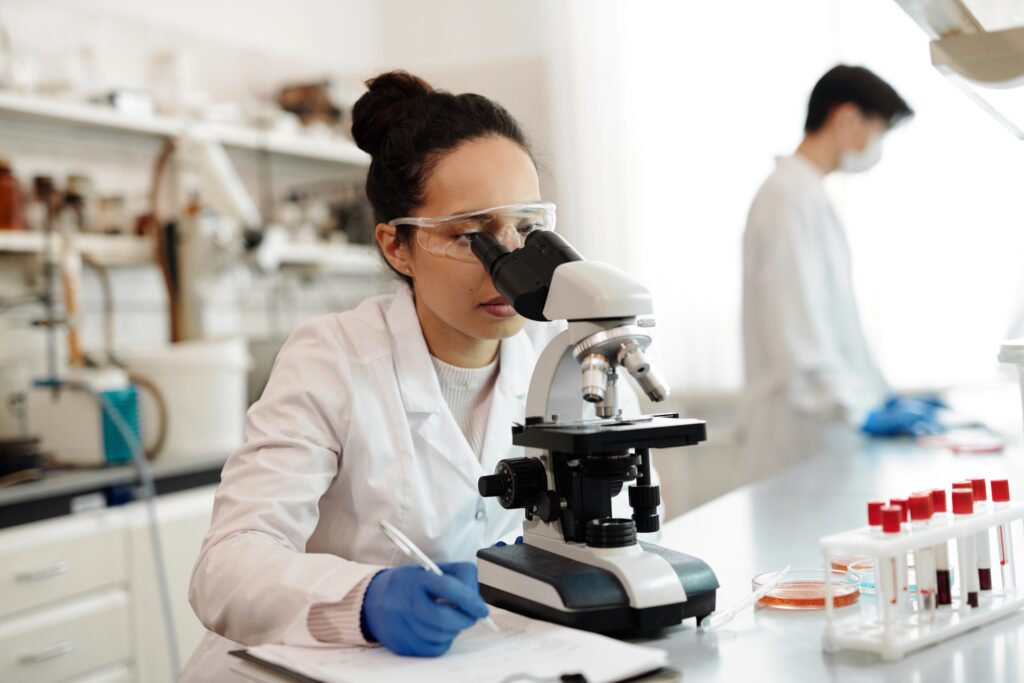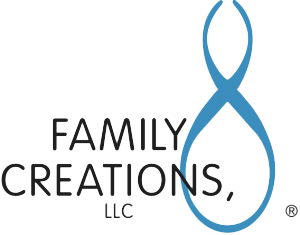
The science involved with using a donor egg for in-vitro fertilization (IVF) is complex. However, Family Creations carefully tracks the data for donor egg success rates so that we can better provide intended parents with a reasonable expectation of how many donor egg cycles they may need before success.
Success rates should be broken down into each stage of the in vitro fertilization (IVF) process. According to a 2016 study at the University of Cambridge, the first stage is the average rate at which a fertilized donor egg will produce embryos. For this stage, the success rate hovers close to 80%. The second stage involves implanting the embryos in the woman’s uterus. This step has a success rate between 75-85%. The final stage is attaining a clinical pregnancy that results in a live birth. For this last and most crucial step, the success rate ranges from 55 to 65%. While donor egg success rates are better than average, determining how many donor egg cycles will be needed before a successful pregnancy and live birth involves careful planning and good luck.
Factors That Affect Donor Egg Success Rates
While medical research has continued to innovate to boost IVF success rates, various genetic factors can impact the quality of an egg. Embryo genetic testing screens such as the PGT-A and PGT-M tests help identify serious issues that could affect the embryo’s health before it is implanted in the uterus.
Environmental factors can also reduce the chances of a successful pregnancy. These can include the health of the IVF recipient, sperm quality, and the IVF facility. At Family Creations, we work with the top fertility clinics in the US with documented high success rates due to their extensive experience and state-of-the-art equipment.
Donor Egg Success Rates for Women Over 40
Because of the natural changes in a woman’s body over time, women over the age of 35 may experience difficulty conceiving a child naturally or even through IVF using their own eggs. However, IVF with a donor egg has much higher success rates because egg donors are usually young and at their peak fertility.
A 2018 article in the Journal of Assisted Reproduction and Genetics found that when undergoing IVF with a donor egg, the success rate improves for all women but especially for women ages 40-45. For instance, the success rate for a 45-year-old woman undertaking in vitro fertilization with her eggs is generally less than 2%. However, when that same woman uses a high-quality donor egg, she has a 51% chance of success on her first cycle. That initial rate, combined with the ability to use frozen embryos for future cycles, boosts the success rate to over 70%, resulting in a proven process for many couples and individuals wishing to bring a child into their life.
Work with Family Creations
If you have any questions about the process of selecting an egg donor or would like to register as an intended recipient, please don’t hesitate to contact us. Our team looks forward to working with you to create the family of your dreams!
